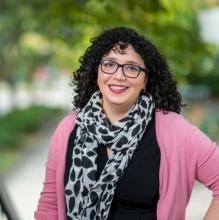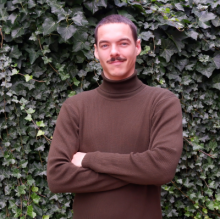Sharing music can be a powerful way to communicate scholarship to a large audience of not only experts, but anyone passionate about music. Personally, I am interested in diversifying (or perhaps altogether getting rid of any notion of) "the canon" in Western Classical music. Many share my vested interest in broadening our understanding of what "Classical" music encompasses. As a concert pianist and scholar, I am able to make music accessible to a wide range of people that might otherwise not have access to this music or may shy away from the unfamiliarity of non-canonical repertoire.
Research Description
"Who is hear?" will explore questions of gender and age as they relate to the professional identities of a selection of Canadian women composers at the Association of Canadian Women Composers (ACWC), as well as perceptions of meritocracy, "success" and "genius" in relation to their professional practices. Further, a closer look at a selection of compositions by the composers interviewed will allow for discussions around artistic work, compositional techniques and storytelling in autobiographical qualities of music.
What does being a Public Scholar mean to you?
The intersection of music performance and research lends itself naturally to being a public scholar. Sharing music can be a powerful way to communicate scholarship to a large audience of not only experts, but anyone passionate about music. Personally, I am interested in diversifying (or perhaps altogether getting rid of any notion of) "the canon" in Western Classical music. That means that I am dealing with music that has either never or only very rarely been heard by audiences. Even "specialists" in the field often do not know this music. Yet, many share my vested interest in broadening our understanding of what "Classical" music encompasses. As a concert pianist and scholar, I am able to make music accessible to a wide range of people that might otherwise not have access to this music or may shy away from the unfamiliarity of non-canonical repertoire. With my work, I am offering pathways to this "new" repertoire through a combination of both live performance and "storytelling" (communicating scholarship in an accessible way) around music, which is an incredibly impactful mode of experiential knowledge transfer.
In what ways do you think the PhD experience can be re-imagined with the Public Scholars Initiative?
I am of the firm belief that public scholarship is a moral obligation for academics nowadays. There are many ways to do that, of course, but I think that every one of us needs to ponder the question of how our work can benefit, impact and contribute to society at large. Any notions of hierarchical value systems between public and "purely academic" scholarship are neither helpful nor appropriate for the times we live in. The last thing I personally would want to do is write scholarship for scholarship’s sake. There is such powerful research emerging from the humanities. It would be a colossal loss if these findings only existed and were only accessible within the confines of the ivory tower of academia.
How do you envision connecting your PhD work with broader career possibilities?
Doing research in music, the first step is to bridge the gap between the historic divide of musicology and performance. I am trying to demonstrate the powerful symbiosis that can exist between the two. The next step is to branch out further to interdisciplinary work and public scholarship. My work has, for a while now, existed in the intersection between academia and performance/public scholarship. I believe that one pathway to inviting more people in to enjoy ‘Classical’ music is to demonstrate and share the stunning diversity that exists within this genre. Speaking from experience, audiences are interested in more varied programming. That does not mean we should altogether stop playing and researching the "old canon", but it will open exciting avenues into new repertoire and pathways to more nuanced research that accurately reflects the musical reality of worlds past and present.
How does your research engage with the larger community and social partners?
This research project runs in collaboration with the Association of Canadian Women Composers (ACWC). They are doing an incredible job at promoting the work of their members both nationally and internationally. Working with them, I hope to be able to capture individuals’ artistic practices, their professional identities and how they experience mentorship, competition, meritocracy and success in relation to their output as composers. My previous research has been focussed mostly on women composers in history. Now, I am going into the present day and seeking to understand the role of women undertaking work that has been (inaccurately) portrayed in a very androcentric way throughout history.
Why did you decide to pursue a graduate degree?
Attaining graduate degrees is a way to deepen my knowledge of and involvement with music in a way that transcends the boundaries of "just" performance or "pure" academic work. It gives me the opportunity to broaden my research profile through interdisciplinary engagement, and allows me to connect to a variety of academic and professional institutions. More than just a "calling card" on my CV, a graduate degree allows me to investigate how to hone my skills and utilise my strengths in a way that is uniquely mine, so I may contribute to the academy, and hopefully also to society at large, to the best of my abilities.
Why did you choose to come to British Columbia and study at UBC?
Wanting to pursue a DMA, I decided to come to UBC, as the program is already more established here than it is in some European countries. I also appreciate the infrastructure and pathways available at this university - including, for instance, being able to take a leave of absence for four years to pursue a second degree at the University of Oxford. I see a lot of potential in the DMA as a degree that combines musical performance with academic research. I think there is still a lot of room for improvement in how this degree is being structured – and I think UBC, too, can and should capitalise more on the many possibilities that this degree can offer, especially in terms of interdisciplinary work and public scholarship. I hope to demonstrate some of the potential and strengths of this degree and be part of the DMA evolving to best serve the students who pursue this degree, as well as the artistic and academic community at large. Being part of the PSI and a member of Green College with its interdisciplinary focus, I appreciate UBC’s investment in continuously rethinking and improving on how research is done and the role the academy plays – can play and should play – in society.




